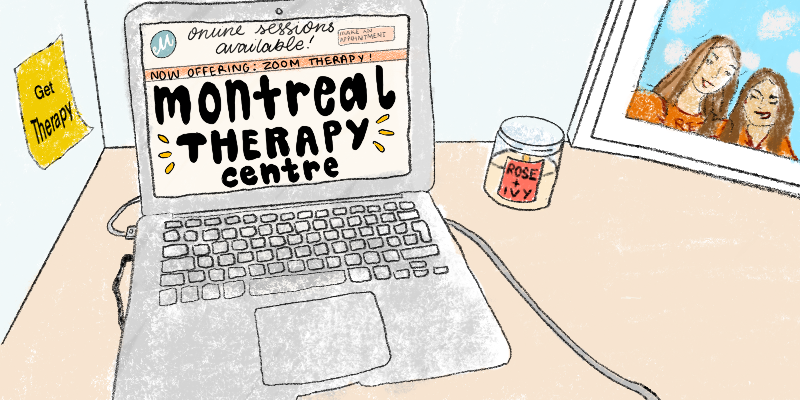As students find their footing for the Fall semester, many may be wondering how to access mental health support through the university. If you read the emails sent out regularly by Fabrice Labeau, Deputy Provost (Student Life & Learning), you have no doubt heard of Keep.meSAFE, the digital therapy resource that the university recommends for those seeking counselling. Keep.meSAFE is but one of many remote resources available for students. The McGill Tribune breaks down how and where to access campus mental health resources this semester.
What are my options for mental healthcare outside Quebec?
Keep.meSAFE is a mental health counselling service offered to students in partnership with the Students’ Society of McGill University (SSMU) and the Post-Graduate Students’ Society (PGSS). The service provides 24/7 year-round access to licensed counsellors through telephone and mobile chat in over 60 languages.
For students located out of the province, this may be the most accessible and affordable option for mental health care.
How can I get non-clinical support?
The Peer Support Center (PSC), founded in fall 2013, is a service offered by and for McGill students. Serina Cole, the PSC’s Promotions and Outreach Coordinator, stressed the group’s commitment to inclusivity.
“[We strive] to be a confidential, non-judgemental support space for all McGill students,” Cole said. “Regardless of [students’] gender, sexuality, or race, we are here to listen.”
For the Fall 2020 semester, the PSC will be offering their services through Zoom. A peer supporter will be in a private room, wearing earphones at all times to ensure full discretion. During the 45-minute appointment, students are welcome to discuss anything and everything on their minds and trained students will be there to listen.
Cole stressed that the PSC’s goal this semester is to be as accessible as possible to McGill students, wherever they may be.
“Although we are known for our drop-in, in-person services, we have moved to an online format so [that] we can broaden our reach regardless of [students] are in the world,” Cole said. “Whether you want some help gathering resources, are feeling stressed out, or just need a listening ear, we are here for you.”
What about the McGill Wellness Hub?
The McGill Wellness Hub is touted as the university’s one-stop-shop for student health. The Wellness Hub offers services such as workshops, support groups, and resources. However, they are not accessible to all students.
In order to receive healthcare through the Wellness Hub, students must be located in the province of Quebec at the time of the appointment and consent to a telehealth appointment. For students currently located outside of the province, many professional services at the Hub are unavailable.
Counsellors are booking both first-time and follow-up appointments, and psychiatrists are still available for appointments via video call if you are a pre-existing patient.
Local Wellness Advisors (LWAs) are now offering online booking, and Access Advisors are available to connect students with resources if they are unsure of what support they require.
What other options are there?
If you or anyone you know is experiencing a crisis, you always have the option of calling local emergency services, or going to the nearest hospital.
However, emergency care often isn’t enough. A key aspect of mental health care is preventative care: Providing consistent and long-term care for those with or without mental illnesses to reduce the amount of crisis care.
For students studying from home, whether in Canada or abroad, family—be it chosen or biological—can be an incredibly valuable support. If you live alone and the isolation is impacting your mental health, go out of your way to connect in-person with your friends and loved ones, whenever and however it is safe to do so.








